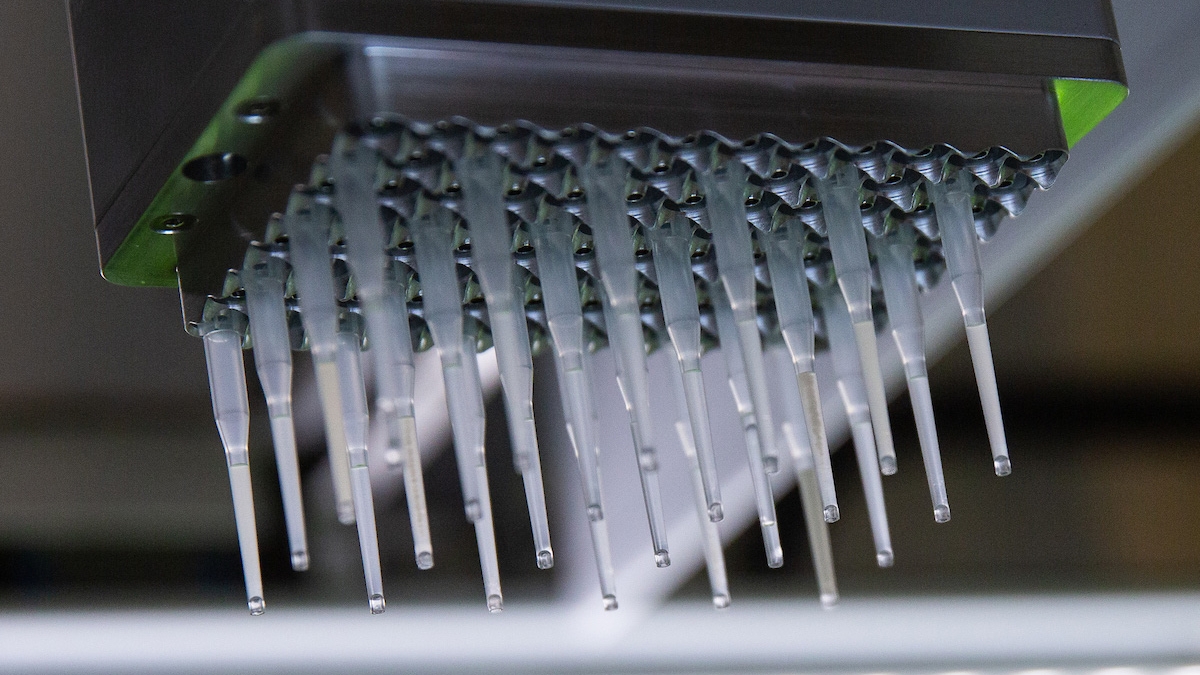As schools and businesses accelerate a gradual return to a prepandemic “normal,” Arizona State University’s experts are part of an initiative to help them figure out how to do it safely.
ASU offers a reopening service that consists of rapidly assembled teams to help businesses ramp back up safely across several areas, including COVID-19 testing, sanitation procedures and developing technology like phone apps to manage new kinds of customer relations.
“Once this pandemic hit, we were really activated by how we could leverage all of the assets and expertise at ASU that would be most relevant for organizations and how we could package that and reach out to companies,” according to Grace O’Sullivan, vice president of corporate engagement and strategic partnerships at ASU.
“A lot of organizations came to us to review their procedures to reopen safely. We had nonprofits and retail organizations and a few school districts come to us.”
With expertise from ASU’s environmental health and safety office and the College of Health Solutions, and using safety guidelines from the Centers for Disease Control, ASU’s Business Concierge team was able to quickly leverage the university's policies, procedures and experts to provide solutions for dozens of organizations, she said.
“We take the needs of the company or the external group and we find the best experts that can respond at ASU, whether that’s faculty, groups of students or staff, and we put together a rapid-response team,” O’Sullivan said.
The team offers assistance in nine areas:
- Workplace expectations, such as customized guidance, plans and online training programs for employees.
- Data insights, utilizing the university’s data analytics experts.
- Supply-chain management.
- Consumer engagement, such as in-store marketing, layout, food safety, packaging and deliveries.
- Contactless interactions, including developing or augmenting mobile applications for businesses such as restaurants.
- Organizational well-being, such as mental health and resilience.
- PPE Response Network, a platform that links university and community resources such as 3D printers to hospitals that need face shields, and then tracks the lifesaving equipment from creation until it’s being used to help patients.
- COVID-19 testing.
- COVID-19 protocols and procedures.
Businesses struggled with supply-chain issues during the pandemic, O’Sullivan said. The ASU team connected organizations with experts including Mohan Gopalakrishnan, an associate professor in the highly ranked supply-chain management department of the W. P. Carey School of Business.
In data analytics, the Business Concierge team worked with the College of Health Solutions’ project “COVID-19 Workplace Commons” to collect data on how employers are changing their workplaces due to the pandemic.
“We’ve already shared best practices through this network and there will be additional data to come,” O’Sullivan said.
Sanitation and health concerns are other areas that companies need help with.
“We’re connecting people who need ultraviolet sanitation with our researchers in engineering, and we’re also helping with testing sanitation robots and devices,” she said.
“We’ve also worked with our partners to bring forward both of our contact tracing methodologies and a platform they can use to record contact tracing because we know that’s incredibly important.”
ASU is also helping with testing and product development.
“One of them is the Health Check app that came out of Safe Health, which was the first cohort of the MedTech Accelerator, which I was involved with starting,” she said. “So it was great to see that come full circle.”
ASU students also are part of the initiative. The Luminosity Lab, a student-led interdisciplinary research unit that uses a design process emphasizing quality assurance, has been developing software and has been part of the university’s PPE Response Network.
In addition, the Business Concierge team can connect organizations to Practice Labs, in which an interdisciplinary team of students from the Luminosity Lab can work with one company’s problems and develop creative solutions.
The initiative also has benefited students. ASU developed a “virtual internship guide” for companies, which resulted in hundreds of internship postings last year.
“Not only are we helping the economy by helping the companies, but we’re getting students this great experience, so they feel part of the response,” O’Sullivan said.
“I think though this pandemic, ASU has been able to live up to its values and I find that so inspiring.”
Top image: Saliva is seen in pipette tips as samples are transferred to trays on the ASU-programmed Biomek i7 in the ASU Biodesign COVID-19 Testing Lab on the ASU Tempe campus. Photo by Deanna Dent/ASU News
More Health and medicine

Fighting the fungus among us
It starts with a spore.When inhaled, spores of the coccidioides fungus can cause coccidioidomycosis — better known as valley fever. The spores may be fungi, but they are no fun.Valley fever usually…

$5 million gift to provide scholarships for new ASU medical school students
A $5 million gift from longtime Arizona State University donor Annette Beus and her family will help provide scholarships for 72 students in the new School of Medicine and Advanced Medical…

The science of sibling dynamics: Why we fight, how we relate and why it matters
We have Mother’s Day, Father’s Day and even Grandparents’ Day. But siblings? Usually they get a hand-me-down sweatshirt and, with any luck, a lifetime of inside jokes.But actually, there is a…


